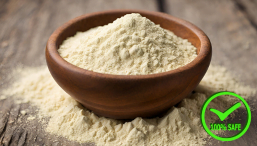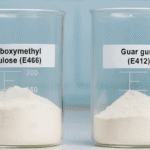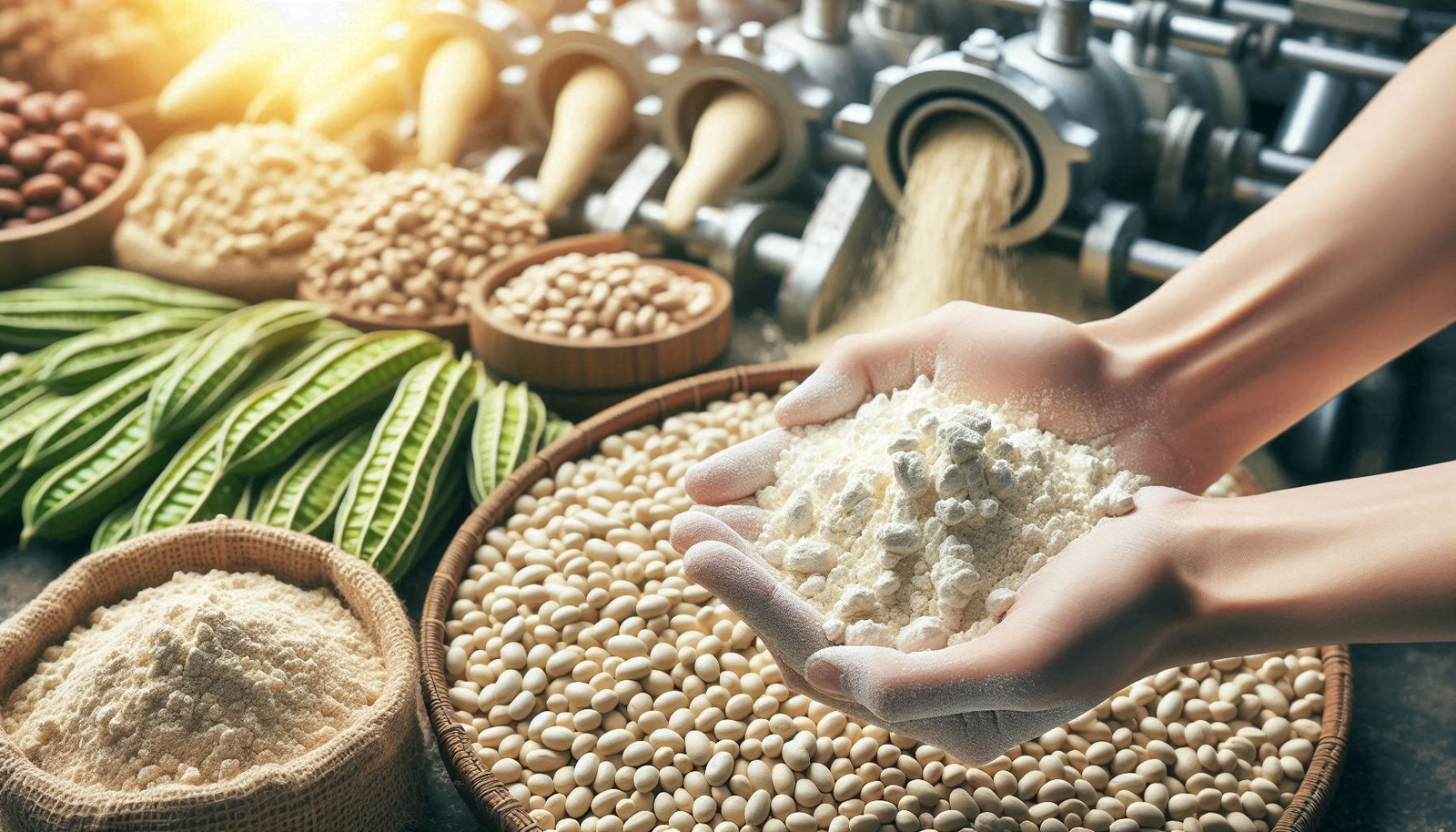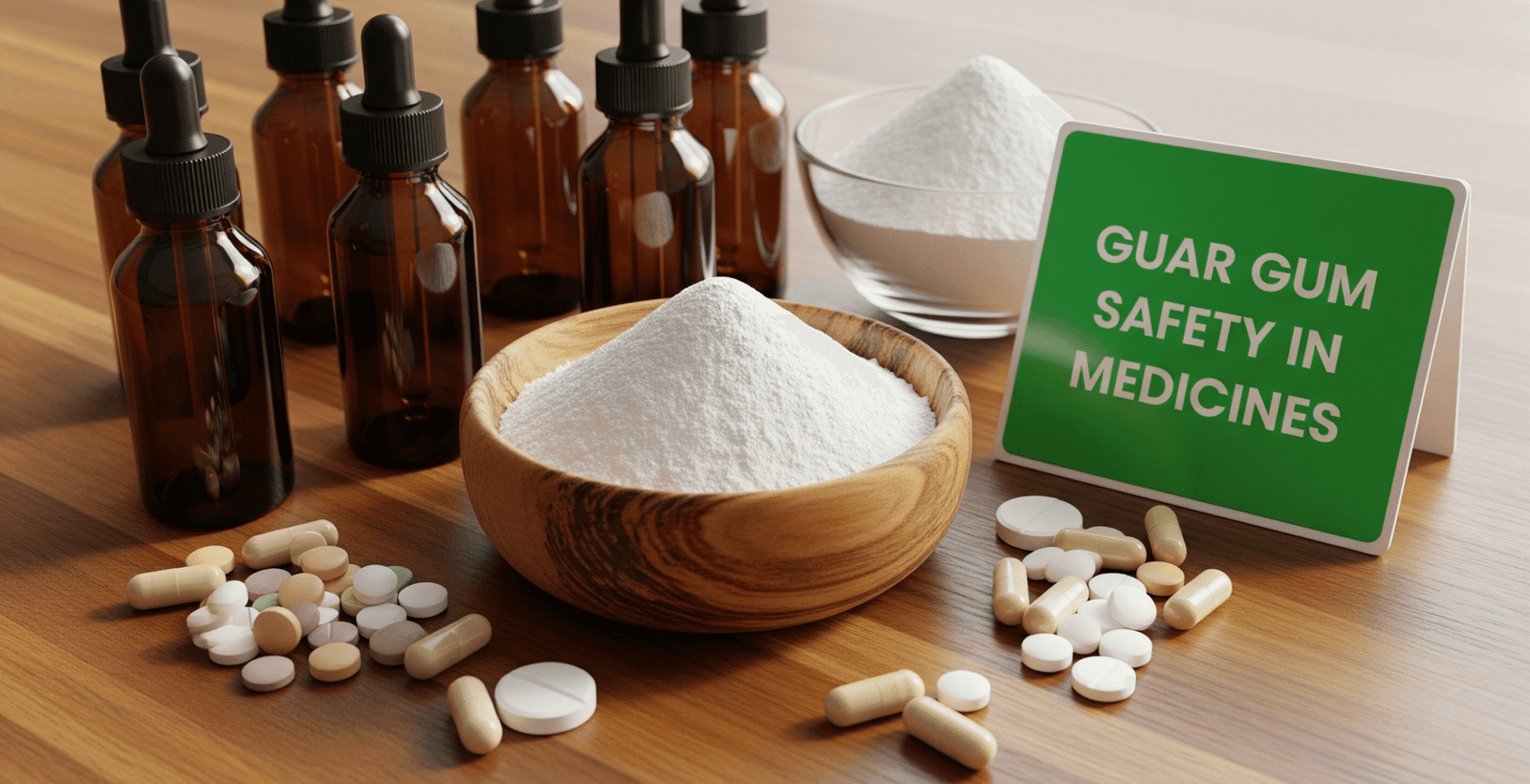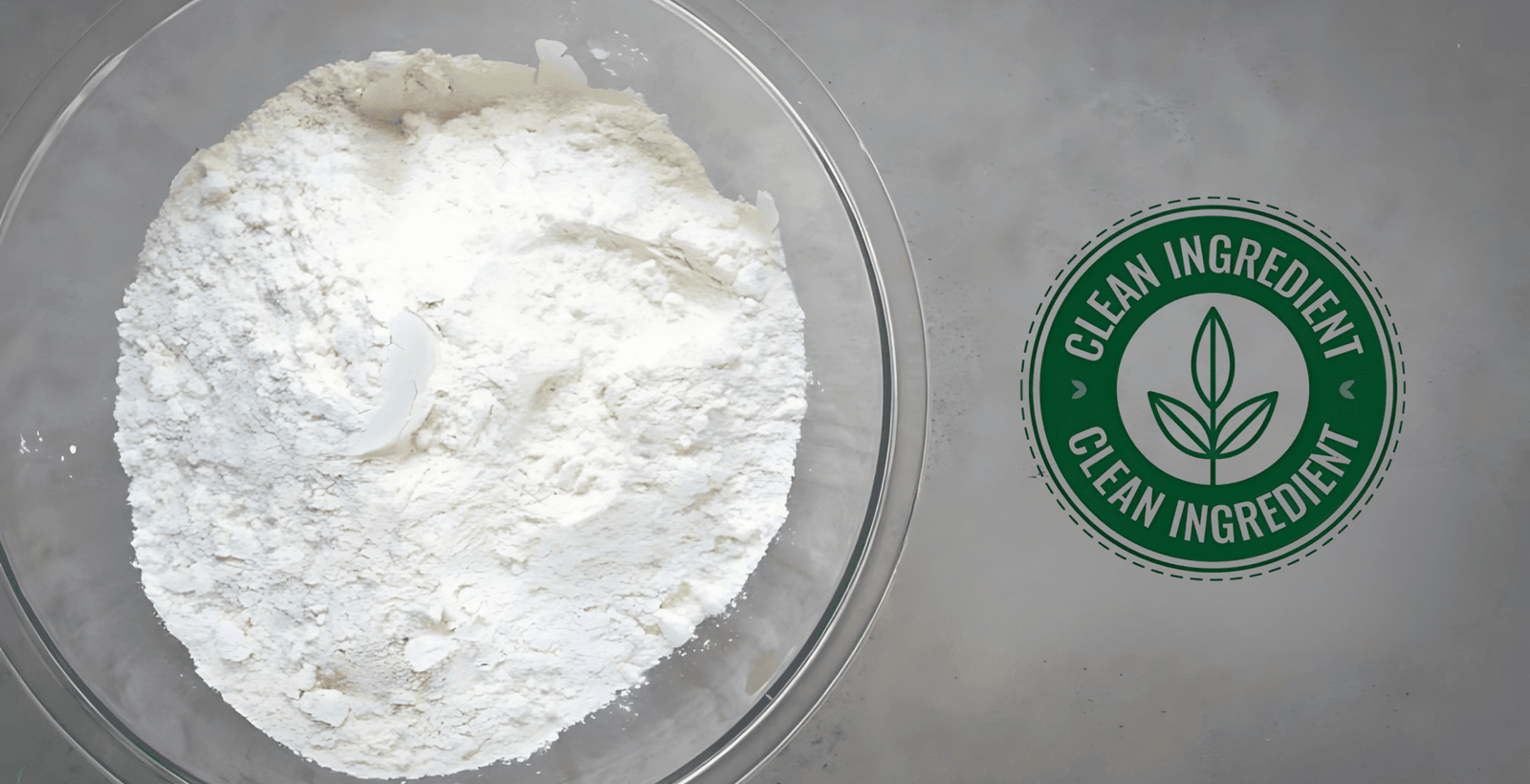Guar gum, a common ingredient found in various food products and industrial applications, has been the subject of numerous myths and misconceptions regarding its safety. In this blog, we aim to explore the truth behind these claims, highlighting the safety of Gum Powder and debunking the misconceptions that surround it.
What is Guar Gum?
Before delving into the myths, let’s understand what guar gum is. Guar gum is a natural thickening and stabilizing agent derived from guar beans, primarily grown in India and Pakistan. Guar Gum, also known as guaran, is a natural, plant-based ingredient made from the seeds of the guar bean. These guar beans, which are mainly grown in India and Pakistan. It is known for its ability to create a smooth and consistent texture, acting as a thickener, binder, and stabilizer.
In short, guar gum is a natural substance that comes from guar beans and is widely used as a versatile ingredient to enhance the texture and stability of various products. It has become a key player in the food industry, finding its way into a variety of products due to its versatile properties.

- Guar Gum Causes Digestive Issues
Myth:
Some believe that guar gum is responsible for digestive problems, such as gas and bloating, and may exacerbate conditions like irritable bowel syndrome (IBS).
Reality:
Scientific studies have not consistently supported these claims. In fact, guar gum, as a soluble fiber, may aid digestion by promoting regular bowel movements and supporting gut health. Research indicates that moderate consumption of guar gum is generally safe for most individuals. However, those with existing digestive issues or sensitivities may want to monitor their intake.
- Guar Gum is Unnatural and Harmful
Myth:
Some critics argue that guar gum is an unnatural and harmful additive.
Reality:
In reality, guar gum is a natural product extracted from guar beans. The process involves milling the beans to obtain a fine powder, which is then used in various industries. As a natural thickening agent, guar gum is favored for its ability to improve the texture and stability of a wide range of products. It is commonly used in food, cosmetics, pharmaceuticals, and even in the oil and gas industry for hydraulic fracturing fluids.
- Guar Gum Contains Harmful Chemicals
Myth:
Another misconception is that guar gum contains harmful chemicals and is harmful to health.
Reality:
In its pure form, guar gum powder is free from toxic substances. The extraction process involves mechanical milling and does not typically involve the use of harmful chemicals. However, as with any ingredient, the final product’s safety depends on the manufacturing process and the quality of the guar gum used. Responsible manufacturers stick to strict quality standards to ensure that their products meet safety regulations.
- Guar Gum is a Potential Allergen
Myth:
There is a misconception that guar gum can trigger allergic reactions in some individuals.
Reality:
Allergies to guar gum powder are extremely rare. It is commonly regarded as safe for the majority of the population. Nonetheless, individuals with known sensitivities or allergies should always check product labels for potential allergens and consult with healthcare professionals if they have concerns.
- Guar Gum Causes Weight Gain
Myth:
Some individuals associate guar gum with weight gain, assuming that its use in food products (especially processed foods) contributes to obesity.
Reality:
Guar gum powder is a low-calorie ingredient that can contribute to the feeling of fullness, potentially aiding in weight management. However, blaming guar gum alone for weight gain oversimplifies the complex factors involved in obesity. Weight-related concerns should be addressed holistically, considering overall dietary patterns and lifestyle choices.
- Guar Gum is Not Safe for Children
Myth:
Some people express concerns about the safety of guar gum, particularly for children.
Reality:
However, the U.S. Food and Drug Administration (FDA) and other regulatory agencies around the world have deemed guar gum safe for consumption, including in children’s food products. Like any food ingredient, moderation is essential, and parents should be mindful of the overall quality of their children’s diets. Guar gum powder is often used in small amounts in various processed foods, and as part of a balanced diet, it is generally considered safe for children.
- Guar Gum is an Artificial Additive:
Myth:
Some mistakenly categorize guar gum as a synthetic or artificial additive.
Reality:
Guar gum powder is a natural substance derived from guar beans. It is not a synthetic additive but rather a natural, plant-based ingredient that has been used for decades in various cultures and industries for its thickening, emulsifying and stabilizing properties.
Conclusion:
Guar gum powder is a safe and versatile ingredient that plays a crucial role in enhancing the quality and functionality of numerous food and non-food products. Despite certain false beliefs and misconceptions about its safety, regulatory studies and scientific data support that it’s suitable for ingestion.
Individuals with specific health concerns, such as digestive issues or heart conditions, should consult with healthcare professionals for personalized advice. It’s essential to base dietary choices on reliable information and avoid falling prey to unfounded fears about commonly used ingredients like guar gum.
FAQs:
1. Is guar gum harmful to digestion, causing gas and bloating?
Scientifically, guar gum, as a soluble fiber, can promote digestion and support gut health, contradicting the myth of causing digestive issues.
2. Can guar gum increase cholesterol levels and pose a risk to heart health?
New studies and scientific researches haven’t provided clear evidence, questioning the idea that guar gum is bad for the heart.
3. Does guar gum contribute to weight gain when used in processed foods?
Guar gum is a low-calorie ingredient that promotes a feeling of fullness, and it does not act as a direct contributor to weight gain.
4. Is guar gum unsafe for children’s consumption?
Regulatory agencies, including the FDA(Food and Drug Administration), consider guar gum safe for children when consumed in moderation as part of a balanced diet.
5. Is guar gum an artificial additive or a natural substance?
Guar gum is a natural thickening agent derived from guar beans, not a synthetic or artificial additive.
6. Can guar gum cause allergies in some individuals?
Allergies to guar gum are extremely rare, and it is generally considered safe for the majority of the population.
7. Does guar gum lead to weight gain due to its use in ice cream and baked goods?
To understand weight concerns fully, look at your overall eating habits. Blaming guar gum alone makes the problem too simple.
8. Is guar gum responsible for symptoms of irritable bowel syndrome (IBS)?
Scientific studies have not consistently supported the claim that guar gum worsens IBS symptoms.
9. Can guar gum be categorized as a synthetic or processed additive?
Guar gum is a plant-based, natural ingredient, not a synthetic or heavily processed additive.
10. Does guar gum have a negative impact on overall health and well-being?
Eating a reasonable amount of guar gum is usually safe and might have health benefits, challenging the idea that it has a harmful effect.

